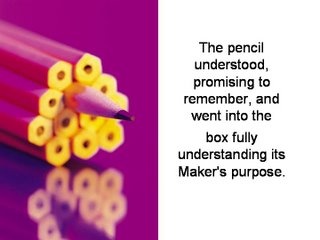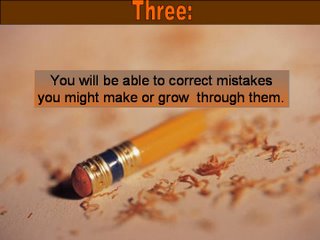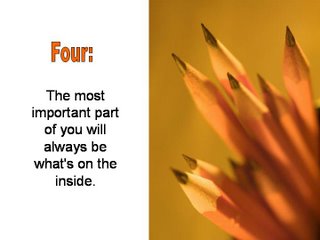Assalamualaikum wbt to everyone...just a piece of reminder for myself and may it benefit you all...Have a read...[A credit to Abu Anas for this nice piece of writing]...may Allah reward you good..Ameen
Tonight, we will begin with a very important and beneficial, Allaah-willing, introduction on the method of seeking knowledge. The reason for this talk is due to the great response and love for seeking knowledge that we see from the youth, may Allaah bless them. However, many of them are not aware of the correct method for acquiring it. How should one seek knowledge? Some of them spend a long time, maybe years, seeking knowledge but they don’t achieve the level that others have achieved during that same amount of time. The reason behind this is due to his lack of adhering to the correct methodology with regard to seeking knowledge. This is the methodology by which if a student of knowledge adheres to it, he will achieve a share of what Allaah had decreed for him – a share that will benefit him; a share that is firm and established, which he will be able to convey to others in a clear and doubt-free manner.
Many of the youth read various writings – sometimes on the subjects of Hadeeth and sometimes on the subjects of Tafseer and Fiqh. They listen to and attend the gatherings of the people of knowledge. However, when they go back and examine themselves – i.e. those who have attended lectures for a year or two – they find that they have not fully understood the subject matter presented to them. Or perhaps they find that they have not acquired a lot of knowledge from this. Their attendance of lectures and lessons has not provided them with a well-founded basis of knowledge, which they can use as a way and method to follow and judge by. The reason for this is due to the lack of adhering to the correct method for seeking knowledge.
So a student of knowledge must follow a clear and defined methodology when seeking knowledge. If he fails to do so, he will divert from the correct path, which is why we see that many of them get fed up and impatient with knowledge. They spend years studying, but then grow weary and tired and eventually give it up. Then some more years pass by and they go back to being regular common folk or reciters – something they never expected. So we would like for the new up and coming student of knowledge to abide by two characteristics:
First: He should adhere to the method of education that those people of knowledge before us adhered to, and due to which they became scholars, after having treaded upon this way.
Second: He should be prepared to sacrifice all of his time to seeking knowledge. And he must not get fed up with it regardless of what the situation is.
In his book “Al-Jaami’ Li-Akhlaaq-ir-Raawee wa Adaab as-Saami’”, Al-Khateeb Al-Baghdaadee reported: “One of the students of Hadeeth used to crave and yearn for seeking knowledge. So he would visit the elder teachers and sit in their gatherings. Then when some time had passed, he saw that he had not benefited at all and that he had not attained a great deal of knowledge. So he said: ‘I am not fit for this knowledge” and gave it up, since he thought that there was something wrong with his understanding or that he was not qualified for seeking knowledge. One day, after he had left off seeking knowledge for some time, he passed by a rock that had water falling on it, drop by drop. The continuous dripping of water had affected the rock to the point that it had made a hole in it. The man stood there for a while, contemplating and reflecting, and said: ‘This water, in spite of its softness, was able to have an effect on this rock, in spite of its hardness. And my mind and heart are not harder than this rock and neither is this knowledge any softer than the water.’ So he became determined to go back to seeking knowledge, which he did and excelled at. And he later became one of those referred to with regard to it.”
This shows you that a student of knowledge needs determination. He should not get tired and say: “I have studied and not learned anything!” Rather, he should go back to the cause. The cause is not found in his natural disposition. With regard to most of the youth or most of those who set out to seek knowledge, the cause is not that they don’t understand. Many of them do understand, but the reason why they are not able to acquire knowledge is because they have not followed the correct path and methodology, which produced the people of knowledge that came before us. This path is simple and easy, and it is easier than the paths that many of the people take today.
Once this point becomes clear, the following important question should come to mind, which is often repeated and which many of the youth continuously ask, and it is: What is the correct way for seeking knowledge? How should a student of knowledge follow this way in accordance with the methodology that will enable him to become a (true) student of knowledge and have the ability to study, if Allaah grants him success in that? This is an extremely important question. Attending the gatherings of knowledge has many benefits to it – the greatest of which is that the student of knowledge comes out from these sittings fully understanding the subjects presented to him such that he is able to make others understand what he has understood.
First: The student of knowledge must have the following necessary and binding characteristics and attributes in his quest for attaining knowledge:
The first and greatest of these characteristics is that he must be sincere to his Lord when seeking knowledge. This is since seeking knowledge is an act of worship and the angels, as stated in an authentic hadeeth, lower their wings for the seeker of knowledge out of contentment for what he is doing. So this act of worship must be done sincerely for Allaah’s sake in order for it to be accepted and blessed by Allaah. This means that one should not seek knowledge in order to achieve some worldly position. One should not seek religious knowledge – knowledge of the Qur’aan and Sunnah – for the sake of status or to be heard or so that he may become a teacher or a lecturer or famous or so that he can give lessons and so on. Rather, his intention behind seeking knowledge should be to worship Allaah and remove ignorance from himself. This is so that he may worship Allaah upon knowledge and clear insight.
So therefore, being sincere in seeking knowledge means that (1) one’s intention is for the sake of Allaah and not to attain some worldly position; and that (2) one intends to remove ignorance from himself. Imaam Ahmad was once asked: “How should one have sincerity with regard to knowledge?” He replied saying: “Sincerity in knowledge is that a person intends to uplift ignorance from himself. This is since a person with knowledge and a person that is very ignorant are not equal.”
Allaah says: “Is one who is obedient to Allaah, prostrating himself and standing in prayer during the hours of the night, fearing the Hereafter and hoping for the Mercy of His Lord (like one who disbelieves)? Say: Are those who know equal to those who don’t know?” [Surah Az-Zumar: 9]
And He says in Surah Al-Mujaadilah: “Allaah will raise those who believe amongst you and those who were given knowledge many levels.” [Surah Al-Mujaadilah: 11]
So Allaah has given preference to those who have knowledge over those who don’t. The person who seeks knowledge in order to worship Allaah upon clarity and to remove ignorance from himself and so that he can live his life in accordance with what Allaah has legislated – this is the one who is truly sincere (in his search for knowledge). He is sincere because his intention was for the sake of Allaah. His intention was to free himself from being a follower of desires and from being ignorant and a blind follower.
Sincerity is the first of these conditions and the primary characteristic and attribute that the student of knowledge must have. The proper characteristics and attributes one should have are many, such that numerous books and writings, big and small, have been authored on them. However, we will only mention from those characteristics, those that concern us in this discussion.
Second: One must apply gentleness and proceed in a slow and calm manner in his search for knowledge. This is since the Prophet (sallAllaahu 'alayhi wa sallam) informed us, in general terms, saying: “Verily, Allaah loves gentleness in every affair.” Seeking knowledge falls under this in the general sense. The Prophet (sallAllaahu 'alayhi wa sallam) also said: “Gentleness does not enter something except that it beautifies it.” Knowledge and studying fall under this.
What does it mean to “apply gentleness?” It means that one should not seek to achieve knowledge all at once, as Ibn Shihaab Az-Zuhree, the famous Imaam from the Taabi’een, once said: “Whoever seeks to attain knowledge in one shot, it will leave from him in one shot. Rather, knowledge is to be sought with the passage of days and nights.”
A poet elaborated more on this understanding, saying:
“Knowledge today and tomorrow the same, By doing this a man will attain wisdom, Through choosing knowledge, which is to be gathered, Since a stream is nothing more than a collection of droplets.”
So gentleness is something that is required. But how is this gentleness to be applied? It is by not desiring to attain knowledge all at once, i.e. in one shot. For example, a person wishes to gain knowledge of Tafseer, so he goes and reads the “Tafseer” of Ibn Jareer. The Tafseer of Ibn Jareer contains all aspects of Tafseer. So this person has sought to attain knowledge all at once. It is not possible for one to “start” and “finish” the Tafseer of Ibn Jareer. And if you were to ask him a question regarding it, nothing from the Tafseer would stick to his mind except for a small portion. He remembers that he read this and that he read that. But he will not be able to properly explain to you the meaning of a verse in the manner that is necessary. So then how is this gentleness to be applied? It is by seeking knowledge in gradual stages – this is the way that must be adhered to.
Likewise, we have the example of a man who intends to study the Science of Hadeeth, so he goes to the book “Nail-ul-Awtaar”, and begins with that, or he goes to “Fat’h-ul-Baaree” and says: “That’s it. I finished one chapter from Fat’h-ul-Baaree.” You should know that this type of person will never achieve the level of understanding that the people of knowledge are upon. He may become well-versed or an informed reader having scattered bits of information. But this is not the knowledge that serves as a foundation and which afterward will propel the one who has it to the level of a scholar, if Allaah so grants it.
The same goes for Fiqh. What have you read concerning Fiqh? He says: “I am reading “Al-Mughnee” or “I am reading the “Majmoo’ (-ul-Fataawaa).” It can be honestly said that this person has not applied gentleness in his search for knowledge. He has sought to attain knowledge all at once. “Al-Mughnee” and “Al-Majmoo’” as well as the other larger works – the only ones who should preoccupy themselves with the (Fuqh) issues contained in them are the people of knowledge. As for the beginning student of knowledge, he should not read it from beginning to end. No doubt, he will at some point need to conduct research on a specific issue, in which case he will have to refer to the larger works. However, he should not read these books thoroughly as if he were reading through a novel.
Also, from the requisites of gentleness is that a student of knowledge should not preoccupy himself with the complex intricate issues. This is since, if while seeking knowledge, he preoccupies himself with intricate issues and complex subjects, he will eventually forget it and never acquire knowledge. The reason for this is because he has not established the proper foundation by which he can understand these complex and intricate (Fiqh) issues. Some of us go to classes that deal with extremely complex issues in which the students spend numerous long years and still have not finished it or they spend months on just one chapter alone, and so on, and they think that they have acquired knowledge. No. This is not the correct way since they has have not applied gentleness. And Allaah, the Mighty and Sublime, says: “But rather, be you Rabbaaniyeen (learned men) because of your teaching the Book and studying it.” [Surah Aali ‘Imraan: 79]
Concerning the part of the ayah: “Be you Rabbaaniyeen”, Abu ‘Abdillaah Al-Bukhaaree, may Allaah have mercy on him, interpreted it by saying: “The Rabbaanee is he who nurtures the people using the smaller aspects of knowledge before the bigger ones.” So this person who is well-versed in knowledge and teaching is he who raises the people upon the smaller aspects of knowledge before the bigger ones.
It is honorable for an instructor or student of knowledge, when teaching, to mention everything he knows about a specific issue. After preparing his lesson, he should mention everything that he remembers on the subject. This is an honorable characteristic. However, this is not beneficial for the one who is teaching since he is reviewing what he knows. The person with knowledge should only deliver what the audience needs. He should not deliver to the audience that which is over their level.
So one must apply gentleness – How should this gentleness be? The reply to this will come when we explain the correct method of seeking knowledge, and that is by seeking knowledge in stages.
Third: He must be persistent in his search for knowledge, giving it the dearest and sweetest parts of his time, and not the dead and lifeless parts of it. So if an individual reserves for knowledge and classes the times in which his mind is exhausted and his understanding is weak, he has opposed the correct method of seeking knowledge and is not being sincere to himself.
So therefore, you should give knowledge the best moments of your time, in which your mind is clear, strong and unoccupied. However, this will only happen if there is something else accompanying it. And that is when the student of knowledge is engulfed in knowledge day and night. He wakes up in the morning with knowledge filling his mind and he passes the evening in the same manner. His life revolves around knowledge.
When he wants to sleep, he has a book next to him, which he may need to reference for a particular (Fiqh) issue. This is why some of the scholars say: “If you see the books of a student of knowledge neatly arranged in order, then know that he has abandoned (reading) them.” If you pay an unexpected visit to a person and enter his library to find his books neatly arranged – each book in its proper place – this means that he does not look into them. There is no book on the floor, nor is there any book beside him, and if he has a table, there are no books on top of it – this indicates that he reserves a particular time for “reading”, as done by some hired educators. There is no such thing as ”study time” for the student of knowledge! This is because all of his time is spent in seeking knowledge. In the morning and in the evening, his mind is preoccupied with the various issues of knowledge.
The best period of time in a person’s life in which he can acquire knowledge is in the period of his adolescence. This is when he can devote all of his time to it. He should distribute his time for the various aspects of knowledge, leaving the best portions of it in which his memory is strong to the sciences that require the mind to be overworked, such as the sciences of Jurisprudence (Fiqh), Fundamental Principles (Usool), Grammar (Nahu) and so on. As for normal times, he should reserve that for subjects that do not require his mind to be overworked, such as the subjects of Interpreting the Qur’aan (Tafseer), Narrations (Hadeeth), Terminology of the Hadeeth (Mustalah) and so on. And the times in which his comprehension is at the weakest level, he should use for reading books on etiquettes, books on narrators, the biographies of narrators, history and so on – general learning.
So he is constantly preoccupied wherever he is. He is always busy with seeking knowledge. No amusement or company can deter him from that. This is why we see that the biggest mistake that some who think that they are students of knowledge commit is that they spend long hours in gatherings engaged in he said/she said talk and speech that does not result in knowledge. He will not become a student of knowledge this way. Rather, he will become something else depending on what he preoccupies his time with.
As for the student of knowledge, then his hopes, desires and aspirations are all preoccupied with seeking knowledge. The gathering in which there occurs discussions on seeking knowledge and a clarification of what Allaah has revealed in His Book or what the Messenger of Allaah (sallAllaahu 'alayhi wa sallam) has stated – this is the place in which one can open his heart and broaden his mind. Or it could be in a place of education or in a place where there is an explanation of the knowledge that Allaah revealed. This is the place where the heart finds ease and relaxation.
So therefore, from the required characteristics that a student of knowledge must have is that he constantly engulf himself with knowledge. He should not give knowledge some of his time. Rather, he should give all of his time to it or a portion of it, such as the period of his adolescence – the period in which it is easy for one to acquire knowledge. This is why some of the predecessors would say: “Give knowledge all of yourself, and it will give you some of itself.” This is since knowledge is vast and its aspects are numerous and diverse. This is why when one of the Imaams of Hadeeth was on his deathbed, he would still be narrating hadeeth, telling his scribe to write it down – knowledge that was obtained even in a situation such as this.
This shows you the extent of his sincerity, following (of the Religion) and the fact that his heart was engulfed in knowledge. When Imaam Ahmad was suffering from his final sickness, at times, he would feel pain and groan out loud. So when one of his students came and heard him, he narrated to him with a chain of narration from Muhammad bin Sireen that Anas bin Maalik (radyAllaahu 'anhu) used to consider it detested (makrooh) to groan. After that, he did not hear Ahmad groan again until he passed away.
This mentality on the part of the student and the teacher is that which will enable the student of knowledge, through the Grace of Allaah, to become a scholar in the future, if Allaah wills. And this is the mentality which will enable him to benefit and cause him to always be preoccupied with knowledge – day and night, he is learning. He should not look down upon a point of benefit that comes to him by way of someone that is young in age or old in age. Some people receive points of benefit from individuals that are younger than them (in age and knowledge), and so they feel arrogant towards him or they don’t give that point their full attention. The reason for this is because they have elevated themselves over the knowledge. And when one elevates himself over knowledge, he will not be from those who are able to acquire it.
Rather, a younger or smaller person may have some knowledge that an older or bigger person doesn’t. And likewise one who is younger or smaller may understand some aspects of knowledge whereas one who is older and bigger may not. But if he explains it to him, he should benefit from it. The scholars have mentioned a clear example for this, which is the story of prophet Sulaymaan and the hoopoe bird. Even though the hoopoe bird was lowly in terms of stature and composure and Sulaymaan was elevated in terms of stature, composure and position in the sight of Allaah and before all of creation, the hoopoe bird said to him: “I have grasped knowledge of something that you have not grasped. And I have come to you from Saba’ (Sheba) with certain news.” [Surah An-Naml: 22]
So the hoopoe bird knew something that Sulayman was unaware of. The people of knowledge have derived from this story that you should not be arrogant with someone that brings you a point of benefit (from knowledge), regardless if he is young and lowly or old and prominent.
These three characteristics are extremely important for the student of knowledge. There are other characteristics besides these, as I mentioned before to you, which you should look up in the books that were written about this subject.
Wallahu ta'ala a'laam....Barakallahu fiikum abadan abada....















